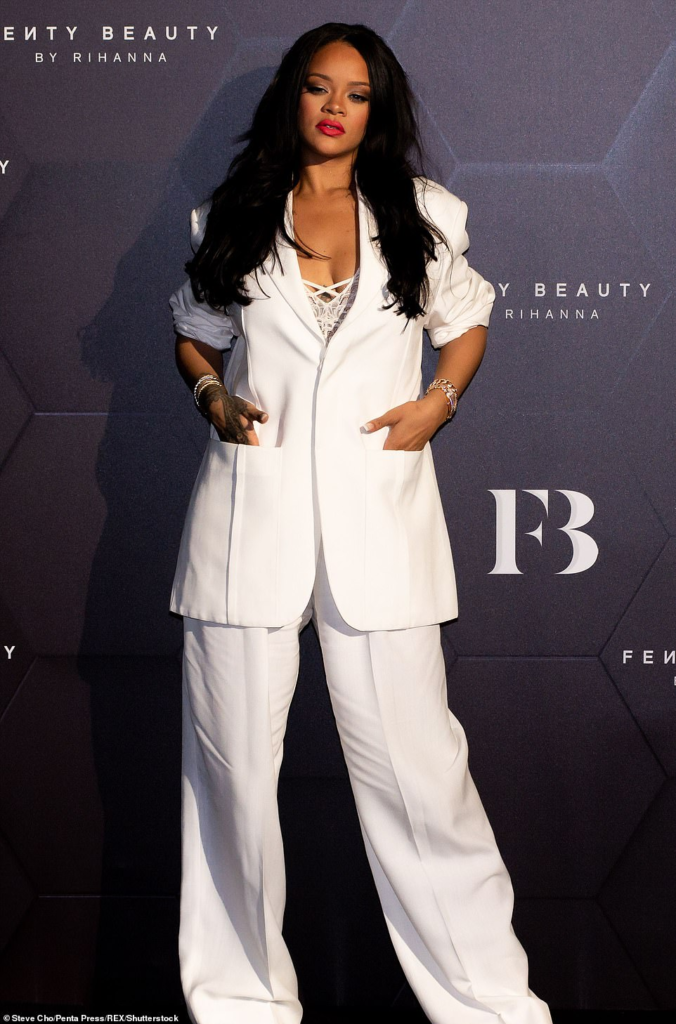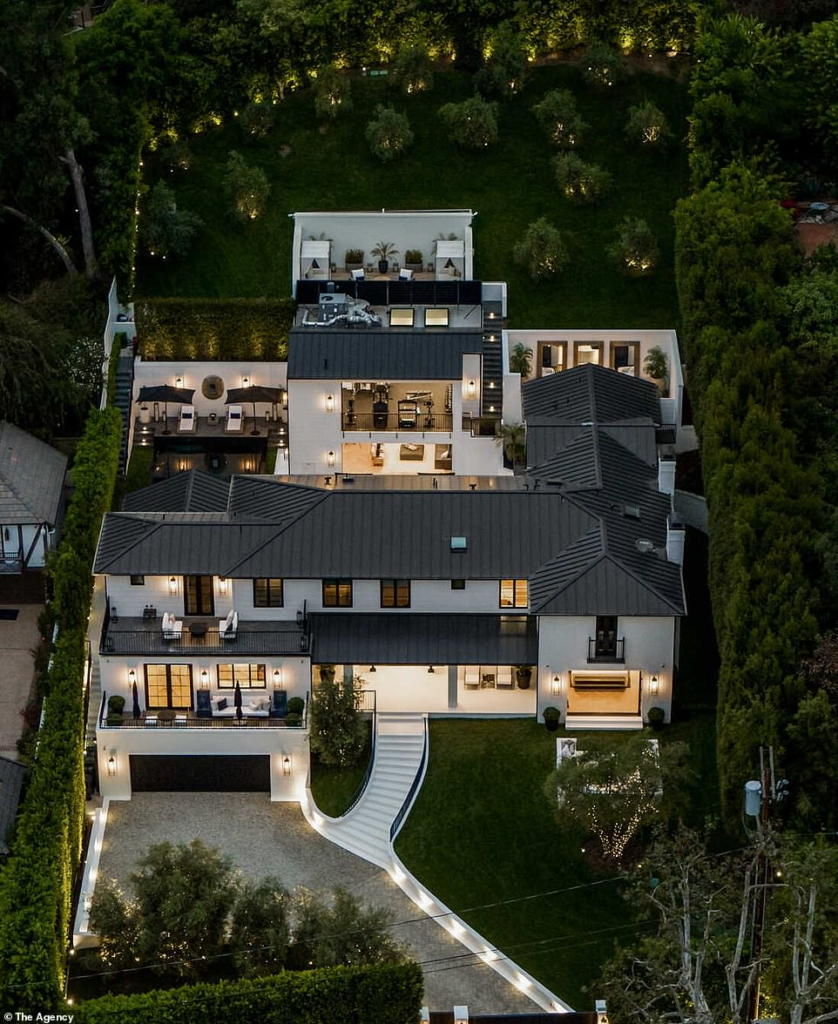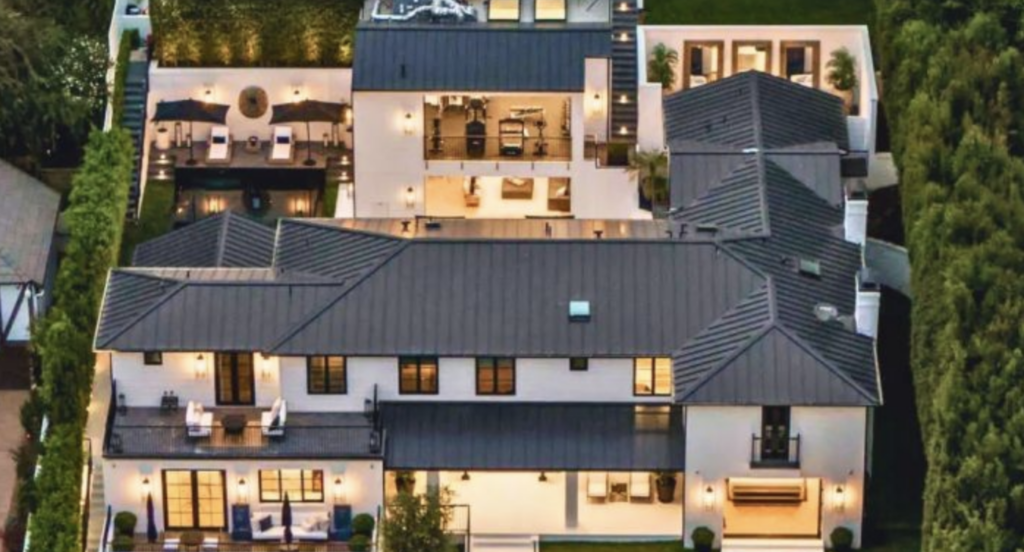
Rihanna’s newly acquired residence was previously owned by Mary Sheldon, the daughter of Sidney Sheldon, creator of “I Dream of Jeannie.” Daniel Starr purchased the estate from Sheldon for $4.3 million and documented his renovations on Bravo’s “Million Dollar Listing.” Despite allegedly spending millions to demolish and rebuild almost every aspect of the house, Starr later sued his contractors for fraud and poor workmanship, as reported by Dirt.



He initially listed the property for $15 million but ultimately engaged in an off-market negotiation with the Diamonds singer, settling for $1.2 million less, as revealed by tax records. The estate boasts complete privacy from the street thanks to tall hedges, making it an ideal residence for the Fenty Beauty founder. Furthermore, its design seamlessly combines contemporary and traditional elements, featuring a modern farmhouse aesthetic with a striking black metal roof, as described in the listing.



The property features an expansive open-air central courtyard adorned with an al fresco terrace, pool, spa, and numerous firepits. Inside, the kitchen boasts luxurious marble surfaces, two islands, and brass fixtures. This purchase coincides with the recent announcement that she would be broadening her fashion and beauty empire by introducing a line of haircare products and tools under the brand name Fenty Hair, just one week prior.



Earlier this month, she submitted a trademark application for a variety of new products, encompassing relaxing tools, waxing equipment, straighteners, curlers, and hair coloring preparations. The application also outlines plans for non-medicated dandruff shampoo, hair restoration lotions, and hair glitter within the new product line. While she hasn’t confirmed this tentative business venture, it coincides with her recent decision to halt operations on her Fenty fashion line, which debuted in May 2019.




Last month, LVMH announced in a statement that the Paris-based brand would be “put on hold” until better conditions arise—a rare setback for the luxury group, which has fared better during the COVID-19 pandemic compared to most competitors. Rihanna, named the richest female musician in the world in 2019, is reportedly saddened by the decision. However, her popular Savage X Fenty lingerie line and cosmetics lines Fenty Beauty and Fenty Skin will continue unaffected. According to The New York Times, her underwear brand generates approximately $150 million in revenue, as of December last year, although it was not profitable at that time.



Fenty Skin achieved sales of $30 million in under four months through its e-store, as reported by WWD. Meanwhile, Fenty Beauty reportedly garnered $570 million in revenue in 2018, according to Forbes. The performer initially launched her makeup line three years ago at Sephora, quickly accumulating sales surpassing $100 million within the first few weeks.




In contrast, when queried about Fenty last October, LVMH’s finance chief Jean-Jacques Guiony referred to it as “a work in progress.” He elaborated, stating, “We are still in a launching phase, and we have to figure out exactly what is the right offer. It’s not something that is easy.”
As for social media presence, Fenty fashion’s Instagram account boasts 1 million followers; Savage x Fenty by Rihanna has 4 million followers, while Fenty Beauty by Rihanna boasts 10.6 million followers. Fenty Skin has accumulated 852,000 followers.



Fenty, named after the Umbrella hitmaker’s full name, Robyn Rihanna Fenty, was intended to expand upon the singer’s successful cosmetics venture with LVMH, offering a full range of clothing, shoes, and accessories. However, the line’s high prices—nearly $1,000 for a padded denim jacket and $810 for a corseted shirtdress—failed to generate as much interest as her other ventures.
In a statement, LVMH and Rihanna emphasized their commitment to focusing on the growth and long-term development of the Fenty ecosystem, with an emphasis on cosmetics, skincare, and lingerie.


Savage x Fenty, the singer’s underwear line, recently secured $115 million in fundraising led by private equity firm L Catterton, connected to LVMH. While LVMH did not provide specific reasons for pausing Fenty, after a significant launch and debut collection, the brand maintained a low profile and did not follow up with major marketing events, even prior to the COVID-19 crisis.
Notably, its Instagram page has not posted since January 1 and has not released any new clothes since November last year.

